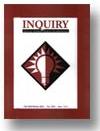Making decisions is a major portion of the manager's responsibilities. It is an aspect that cannot be taken lightly nor can it be done in a hasty manner. Hasty, careless decisions can have devastating results on the manager's department or even for the entire company. Decisions that are made with deliberation using different kinds of processes, however, can lead the department or company to better and/or more profitable operations. When decisions are indeed made in this manner, the manager should feel confident that he or she has made an appropriate decision and is the best option given the information available at the time. This does not mean to say that the manager will always make the correct decision; lack of information or situational changes can lead to faulty analysis. However, if the manager uses critical thinking and proven successful decision-making strategies, he or she can and should be confident in whatever action they have decided is appropriate.
Their own confidence level will, in fact, affect the outcome of their action.
Managers spend the majority of their time absorbing information and trying to process all the information in order to reach a decision of some sort or another. With in the realm of the information system a manager has many sources of where he or she may get this information, including, (a) systems and structures set up to keep them apprised on ongoing events, (b) the people around them who volunteer information and can be approached in search of trouble signs, clues, and missing pieces of puzzles, (c) the values of the organization, which point people in certain directions and define the critical variables in a complex array of possibilities, and (d) the manager's own direct experience
Our basic concept of critical thinking is, at root, simple. We could define it...


